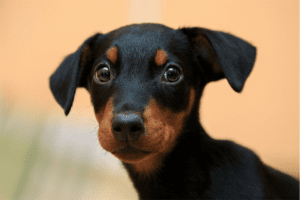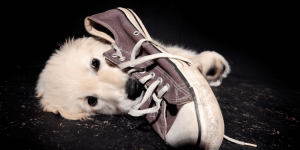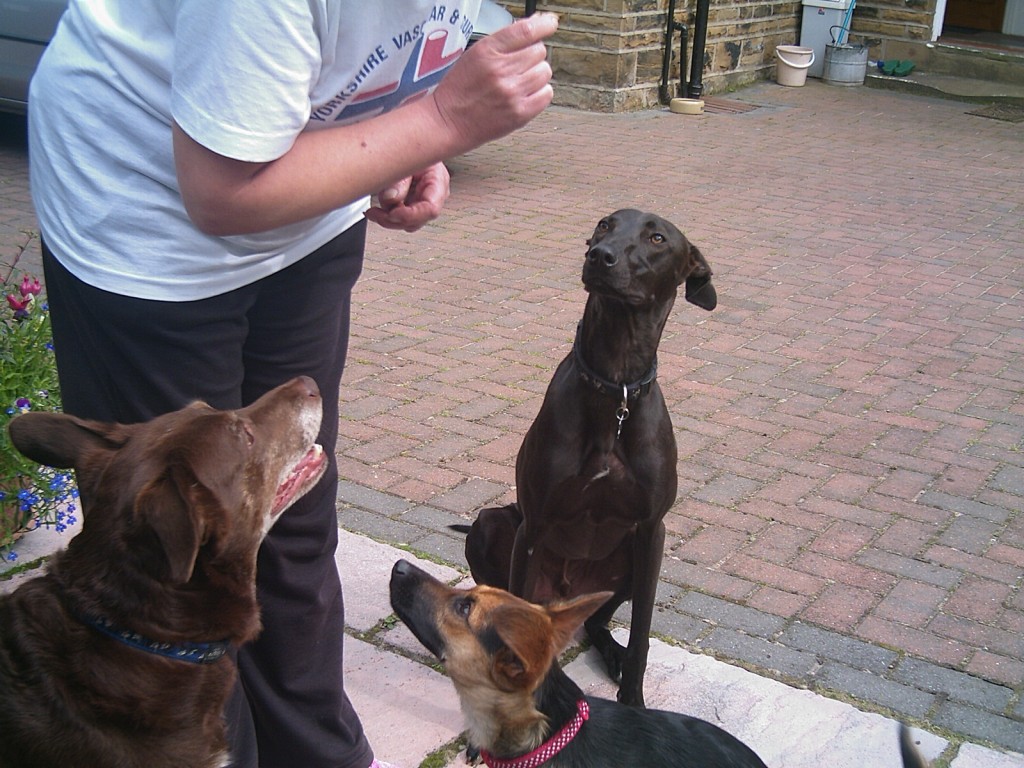When Do Puppies Grow Up?
Many people with hyper puppies must sometimes wonder how long that whirlwind puppy stage lasts. How long does the whirling dervish- chewing-pooping-in-the-house stage go on for you might ask? In this article Holidays4Dogs looks at exactly this – when do puppies grow up? Read on for tips and reassurance, if you are a puppy owner in danger of tearing out your hair!
Despite how it may feel at the time, puppies grow up quickly. However, they do tend to mature at different rates depending, on their breed and temperament. Variations can even occur between litter mates, so if you are comparing your rambunctious pup with a calmer litter-mate, don’t worry – they will catch up eventually with more mature behaviour. Puppies can learn quite readily from a very young age, so don’t delay training before the puppy is six months of age.
mature behaviour. Puppies can learn quite readily from a very young age, so don’t delay training before the puppy is six months of age.
The development of puppies follows a fairly structured timeline for each individual. Broadly speaking, puppies mature into adult dogs between the ages of one and two years of age. However, with some of the larger breeds, this can be a little longer.
Most dogs will reach sexual maturity at around the age of six months, which means they are able to reproduce. This does not mean to say, however, that the puppy is all grown up in other ways.
Don’t worry – you should begin to see improvement in calm behaviour as the pup moves beyond the age of six months.
Because puppies can be incredibly demanding of an owners time – and patience! – it is not recommended that would-be owners purchase two puppies at the same time. Wait until your first dog has matured, before contemplating adding another pooch to the family.
Six months and beyond.
At six months, puppies become adolescents. At this age, puppies are beginning to grow up. However, they may start to display teenage-type behaviours that can drive even the most laid back owner to distraction.
It is quite common for 6 month old puppies to be quite destructive. This might be because of increased confidence and energy levels. In addition, puppies learn a lot about their environment by mouthing and chewing. It is important to make sure your pup’s environment is safe and any hazardous items kept well out of reach.
It is important to make sure your pup’s environment is safe and any hazardous items kept well out of reach.
This is the point at which many puppies appear to have ‘forgotten’ everything they have previously learned. This may include house-training accidents.
It is important to keep up with positive socialisation and training. Joining a good dog training class, will help you to stay on the right track as your puppy grows up.
Some breeds can appear physically mature in terms of height and stature, while still behaving like a pup. This can be frustrating for owners of puppies that have grown into a 50 lb dog, but still bounce off the walls with never ending energy.
Growth has begun to slow down by now, however. Therefore, smaller breeds have little more growing to do by the age of six months. Large and giant breeds can keep growing until they are between 12 and 24 months – so by six months they tend to take on that ‘gangly’ look which often accompanies a rather clumsy gait.
One year +
Dogs are no longer considered to be puppies after one year. The maturing dog will gradually, over time, display a calmer nature and a rather different personality to the cheeky young pup. By around 1 ½ to 2 years of age a dog will be more responsive to training and much better at following rules.
Likewise, the young dog should be settling well into a routine and respond to other dogs as fellow adults – rather than being pushy or ‘rude’ as you might expect a youngster to be. At this point many people are happy that their puppy finally seems to have grown up.
It is still important to continue with training, ensuring your dog’s emotional, mental and physical needs are all met. Don’t forget, small dogs tend to mature more quickly than large or, giant breeds.
Conclusion.
Making sure your puppy is well socialised, exercised and fed the correct diet will ensure they will grow into a well adjusted dog. Like human children, puppies don’t stay small for very long. Enjoy those exciting first few weeks and months – because they will soon be a distant memory!



